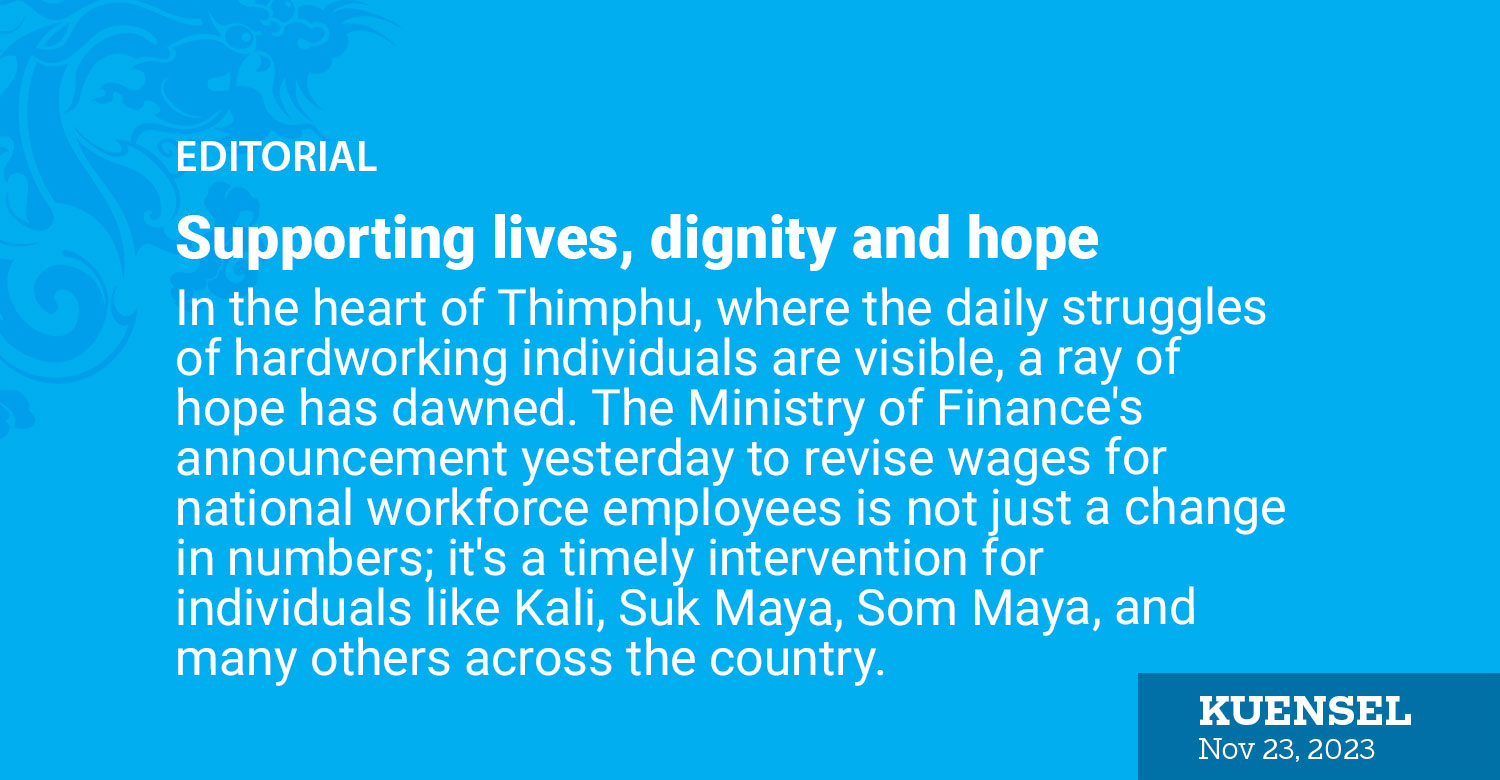In the heart of Thimphu, where the daily struggles of hardworking individuals are visible, a ray of hope has dawned. The Ministry of Finance’s announcement yesterday to revise wages for national workforce employees is not just a change in numbers; it’s a timely intervention for individuals like Kali, Suk Maya, Som Maya, and many others across the country.
Kali, a devoted employee of Thimphu Thromde for 15 years, sees the news of a salary raise as a game-changer. Her meager monthly income of Nu 7,000 has made it challenging to make ends meet in a world where the cost of living is high. The revised salary, ranging from Nu 12,000 to Nu 18,000, brings hope for a better life, allowing dreams like Kali’s of providing her family with a hearty meal that includes the luxury of meat to become a reality.
Suk Maya, Kali’s neighbor at the age of 60, shares the sentiment of many in her position. The revised salary offers her a chance to free herself from the shackles of debt accumulated at grocery stores, envisioning an independent and happy life for her family in the twilight years of her hard-earned service.
The struggles faced by individuals like Suk Maya and Kali extend beyond financial constraints, with the need to seek additional employment during holidays and weekends becoming a way of life. With the promise of a more dignified wage, these dedicated employees can now dream of a respite they have long been denied.
The finance ministry’s decision to implement the revised wage rates from October 1 is commendable, recognizing the invaluable contribution of the national workforce. It goes beyond financial remuneration, acknowledging the dignity of labor and the right of every worker to a life of decency and fulfillment.
However, the recent announcement of a salary raise for the national workforce employees must be considered within the broader economic context. Bhutan, like many nations, faces challenges in curbing inflation, which casts a shadow over the economic well-being of its citizens.
Inflation, the rise in the general price level of goods and services, poses a significant hurdle for individuals and families striving for financial stability. Bhutan has encountered inflationary pressures in recent years due to various factors, including external economic conditions, global commodity prices, and domestic supply and demand dynamics.
The surge in inflation directly impacts the purchasing power of the Bhutanese Ngultrum, affecting the real value of wages and the cost of living. Despite the positive news of a salary raise for the national workforce employees, the challenge lies in ensuring that this increase outpaces the rate of inflation, allowing individuals and families to experience a genuine improvement in their standard of living.
One contributing factor to inflation in Bhutan is the dependence on imported goods, exposing the economy to fluctuations in international markets. Global economic conditions, such as rising fuel prices and disruptions in the supply chain, contribute to inflationary pressures, making it challenging for the government to stabilize prices domestically.
Balancing economic growth with the need for price stability requires strategic policy interventions and a multi-faceted approach that addresses both domestic and global economic factors. The political parties vying for power must devise measures to curb inflation and ensure a decent living for even the lowest-paid workers.


